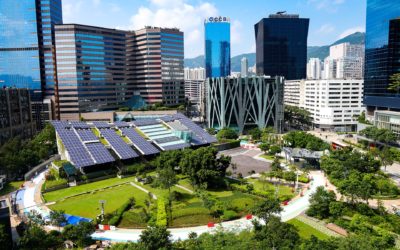Smart Grids
Redes inteligentes

RESEARCH AREAS
Smart Grids
Description
The Smart Grid area works on research, development and transfer of optimal planning systems for the operation of electricity grids equipped with renewable generation, storage and controllable loads, as in the case of electric vehicle charging. The integration of thermal and electrical grids to optimise their joint management is another of the points on which it focuses.
It also works on the characterisation, prediction and management of demand flexibility in residential and industrial areas with the aim of providing auxiliary services to the distribution grid and participating in demand-side markets.
It also addresses the modelling of the distribution grid, the design of algorithms for its optimal operation, the modelling of the effect of electric vehicle charging, the detection of congestions and overvoltages, the use of flexibility to solve these types of problems and the detection of non-technical losses.
These activities are complemented by the development of algorithms for the prediction of energy demand, renewable energy generation and the resulting price in some electricity markets.
Research Lines
- Research in advance control algorithms for the optimal planification of hybrid energy grids (sector couplling), distributed and with storage.
- Research in control algoriths for the flexibility demand, demand response and its participation in markets.
- Research in algorithms for the observability and reconfiguration of the electric grid (resilience).
- Research in tools for the management of energy communities.
- Research in advance and intelligent strategies for the management, operation and maintenance of buildings based in AI/ML/DL for the generation of support decision making systems.
Networks and Platforms
Reference clients:
Team

Ali Vasallo Belver
Head of Energy Division

Sergio Saludes Rodil
Head of Smart Grids Area
Related projects
iAMP_Hydro
iAMP-Hydro aims at improving the operation of existing hydropower plants (HPP) through the development of digital solutions which will be integrated into an intelligent Asset Management Platform (iAMP)
D-HYDROFLEX
D-HYFROFLEX seeks research into technological innovations in hydropower plants in search of improved efficiency and sustainability and hydropower competitiveness in modern electricity markets. The project will develop tools for the digital renovation of existing hydroelectric plants based on sensors, digital twins, artificial intelligence, hydrolyser modelling and image processing.
SINNOGENES
SINNOGENES project aims to develop the Storage INNOvations (SINNO) energy toolkit, a complete framework of methodologies, tools and technologies that will enable the grid integration of innovative storage solutions beyond the state-of-the-art, while demonstrating sustainability, technical performance, lifetime, nondependency on location geogrpahical particularities and cost.
PISTIS
PISTIS brings forward a reference federated data sharing/trading and monetisation platform for secure, trusted and controlled exchange and usage of proprietary data assets and data-driven intelligence.
CERFLEX
CERFlex project consist on research in development and TIC solutions implementation moods that help to the deployment in a new concept of energy communities, especially focus on rural environment, facilitating a decentralized management of the energy interchange, the maximum utilisation of the renewable resources and a sustainable consume of the available resources.
AGISTIN
AGISTIN will enable industrial users to rapidly deploy renewable energy through advanced integration of innovative energy storage technologies. The rapid decarbonisation of industry through electrification, the growth of renewables and the need for grid stability represents a unique opportunity for new forms of storage and schemes for grid integration.
ADCONTROL
ADCONTROL is a project that focuses on implementing asset monitoring and control architectures to manage the comfort of dwellings that are part of condominiums or neighbourhoods.
GEDERA
GEDERA is a research project whose objective is the study and development of a multi-agent architecture that allows the development of applications for the smart grid, focusing the project on the management of flexibility in buildings.
EVPLAN
EVPLAN looks for developing tools that use as strategic decision making base that benefit users and future consumers of the electric vehicle
TIGON
The proliferation of renewable energies and the electric charges that operates with continuous current originates a growing interest in electric grids that operates with continuous current. This is due to the higher efficiency, security, flexibility and feasability that grids have than those ones that operates with alternate current.













